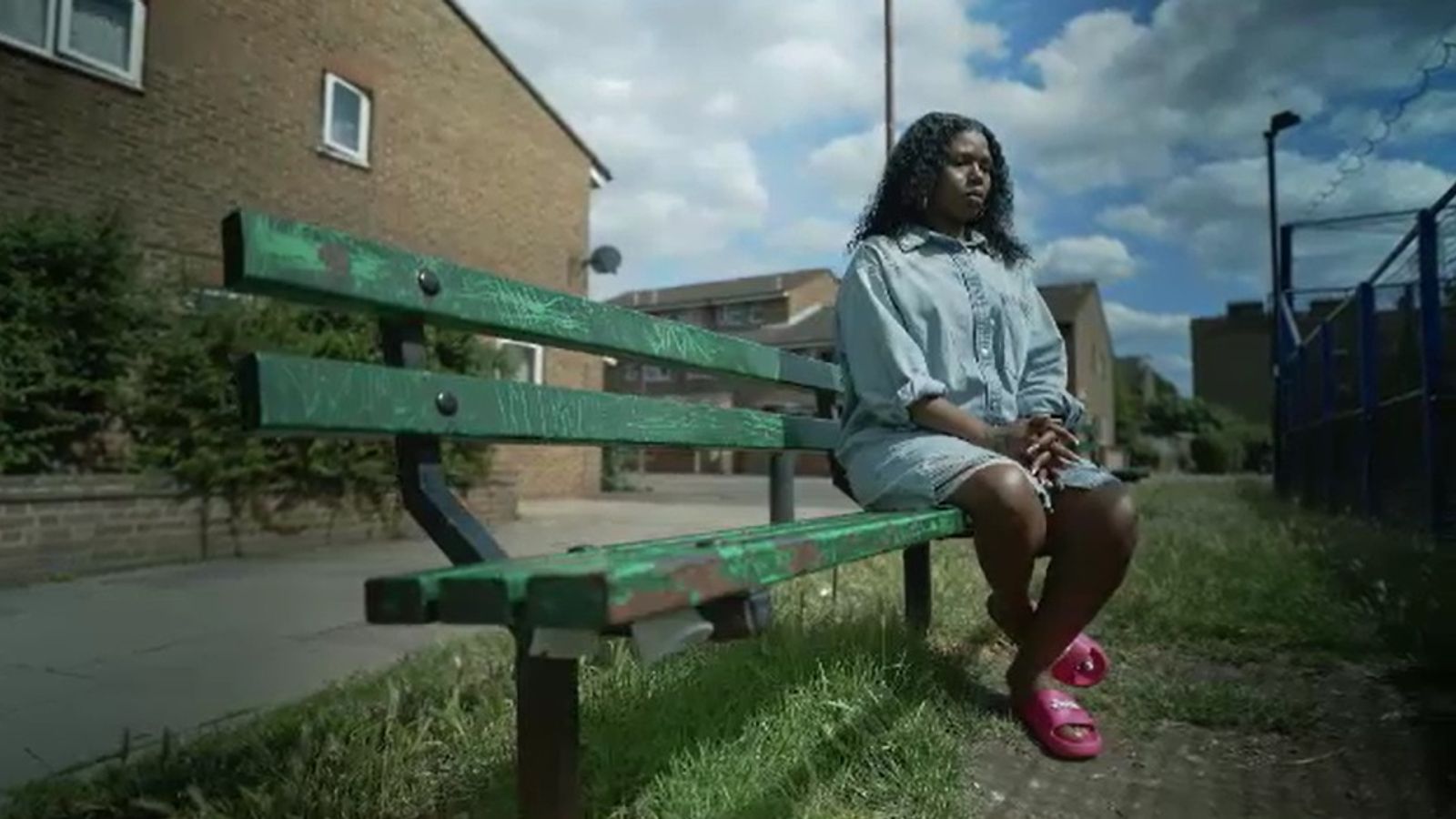At risk, vulnerable and invisible: The thousands of girls in England exploited within gangs


A new report warns of an unseen risk for tens of thousands of vulnerable girls facing violence and exploitation within gangs.
The Commission on Young Lives and Manchester Metropolitan University estimate they amount to a third of the young people at risk of involvement in extreme violence.
It says as many as 60,000 girls in England – often in gangs – are vulnerable to serious violence but are “invisible,” with most gang prevention services aimed at boys.
After losing her father aged 16, Asha was left to fend for herself. She was placed in a council house in south London and expected to organise her own meals and pay her utility bills.
Survival meant finding a source of income – and a new family.
“I was in what people refer to as ‘county lines’,” she said.
“So quite a lot of my childhood was getting up by myself going catching a train for many hours, going to secluded areas, away from my friends, being by myself for a long period of time.”
Asha would travel from London to small towns and cities, carrying drugs and bringing money back to the gang. Often, she would carry the drugs internally, which can be extremely dangerous.
“Being a woman, we can conceal things much more easily,” she said. “I think that there’s this feeling that because we’re women we won’t get caught.”
Advertisement
Read more:
Metropolitan Police to use counter-terrorism tactics to catch 100 worst sex predators
Sexual abuse survivor ‘appalled’ as her personal details may have been accessible online
Asha did get caught. She was carrying class A drugs internally from the Netherlands to the UK.
She ended up in prison and says this was the first time she’d received any help to divert her away from gangs.
A recent study by the Metropolitan Police estimated a third of those affected by gangs are women despite making up only 0.2% of London’s known gang associated people.
The charity Redthread, which reaches out to vulnerable youths attending hospital, says last year 38% of these were female.

Aliya Ali, who was involved in selling drugs for gangs, now supports other women with her organisation “Daddyless Daughters”.
She said: “The most common risk posed towards boys and young men is violence.
“Whereas for girls, it’s not only physical violence, it’s sexual abuse and exploitation and it’s emotional abuse and mental abuse. And so, trauma and experiences are layered.
“A lot of professionals within our field, they put us in under that bracket, that box, that even I was in, which is complex needs. And essentially what that means is they don’t know what to do. They don’t know where to start.”
Anne Longfield, chair of the Commission on Young Lives said: “It is now clear that thousands of girls are being harmed, sexually assaulted, raped or controlled in a way and on a scale that is not being recognised.
“Sadly, girls’ experiences are often hidden – out of sight and out of mind with most of the services and support to tackle serious violence, county lines and exploitation focusing on boys.”
A new film, called Save Me, will be launched in schools next term and hopes to raise the profile of the issue.
Made by Aviard Inspires, its central character is a girl in a gang and its message is that communities need to be more alert to vulnerable teenagers.

Filmmaker Amani Simpson said: “I remember growing up and seeing young girls that were quite vulnerable and dressing slightly older and getting attention from the older boys who were able to give them money, give them attention or drive them around.
“I want to nationalise the conversation, because, outside of London this is a narrative that lots of young people, no matter what your background, are dealing with.”

Professor Hannah Smithson, director of the Manchester Centre for Youth Studies at Manchester Metropolitan University, said: “Our research and evidence gathering provide a clear sense of direction for policymakers seeking to tackle these problems, support girls and young women to succeed and prevent harm.
“A greater focus – alongside investment – in early help and the development of community, gender-based, culturally representative, trauma-informed support is key.
“Creating environments where girls and young women can build trusted relationships with people who they can relate to, and go on to disclose what is going on, is crucial.”
Today’s report recommends a series of measures including: